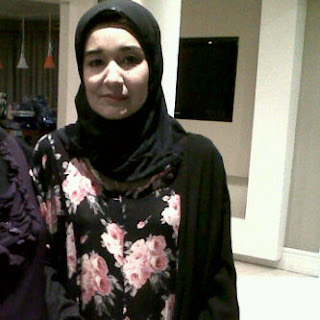Inna lillahi wa inna ilayhi raji'un...
'Indeed she has captured the hearts of many Muslims and non-Muslims around the world. Her plight and difficulties has created an ocean, the content of which is supplied by the tears of millions of supporters around the globe. Aafia Siddiqui, 39, who was accused and convicted of assault with intent to murder, was sentenced in September 2010, to 86 years in prison by a United States district court.'
Radio Islam International caused that ocean of tears to overflow, in an interview with Aafia’s sister, Dr. Fawzia Siddiqui.
Speaking to Ml. Sulaiman Ravat on the Sabaahul Muslim programme, Dr. Fawzia Siddiqui gave the listeners of Radio Islam an insight into the current happenings of our sister’s life.
“She is not doing well…apparently she is being slow poisoned. There is also a rumour of her being pregnant…and these are higher authorities in the prison and in the Pakistan council who informed us about this.”
Apparently there is a letter which states these allegations however, Dr. Fawzia is still waiting to receive the letter. Dr. Fawzia mentioned that the family had some sort of communication with Aafia. The family was granted 10 minutes a day to speak to their beloved after much difficulty.
“We were allowed phone calls after about two years of struggle. We were 300 minutes per month.”
Unfortunately, on the 28 October 2011, even those privileges were cut away. Dr. Fawzia stated a possible reason for this.
“She had agreed to signing for the appeal and whichever attorney we, as a family would recommend for her.”
“And I think it’s almost after she agreed to the attorney that they suddenly shut down the conversations.”
As the words passed through a lump in Fawzia’s throat, the hearts of many listeners crashed into millions of pieces.
“For the first time in 8 years her daughter spoke to her mother (and) made a connection.”
“She was very very concerned about her children, their education and if they were happy…and if they were eating.”
When asked about food, she simply replied “Don’t ask me”.
However the interview made the listeners realize that Allah’s unseen help is like a cloud over Aafia on a hot day. Her spirit of hope during phone calls at times, as described by her sister is absolutely amazing.
“There was a lot of pain and it was obviously pain on both sides I am sure…after some conversations there was hope. There were times were we would be despairing and she would be counseling us.”
There were also reports that her Quraan was thrown into a bin. However, little does the enemy realize, Islaam and Imaan is not only in Quraan. In fact, it lives in the heart.
“She tells her mother that you have no idea how much at peace I am because I know that I am innocent. My Creator knows and the Habib (Prophet Peace be upon him) knows and they are with me and I know that I am in the right.”
Ml. Sulaiman Ravat described it as “A heart wrenching interview”. Dr. Fawzia Siddiqui stated that there is no contact with Aafia since the 28 of October.
It is indeed a responsibility of all Muslims to remember Aafia in their Duaas and to the best of their ability, make all other possible efforts for the freedom of Aafia and all Muslims around the world. Freedom is not a Muslim right…it is a human right!!!























